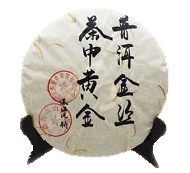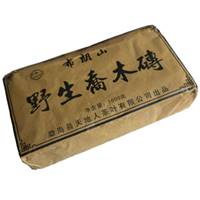What is Tea
So What is Tea ?
"A drink made by pouring hot water onto dried and cut leaves,
sometimes with flowers, especially the leaves of the tea plant".
sometimes with flowers, especially the leaves of the tea plant".

The 'tea plant' is called 'Camellia Sinensis', also referred to as a 'tea bush', 'tea shrub' or 'tea tree' native to South-east Asia, but cultivated in tropical and subtropical areas across the world. Tea bushes are evergreen and produce small yellow/white flowers. The leaves and buds produced (3000 per year) are infused to make the drink.

Six types of tea are all harvested from this species Green, White, Yellow, Oolong, Pu-erh and Black

Non-Fermented/Oxidised
In Green, White and Yellow the leaves or buds are simply picked, then dried and packaged. The leaves may be steamed, flattened, twisted or rolled into little balls to enhance a tea's fragrance or taste. This process retains much of the fresh taste and only allows a little oxidisation take place.
In Green, White and Yellow the leaves or buds are simply picked, then dried and packaged. The leaves may be steamed, flattened, twisted or rolled into little balls to enhance a tea's fragrance or taste. This process retains much of the fresh taste and only allows a little oxidisation take place.

Semi-Fermented/Oxidised
Known as Oolong tea (semi-green or blue-green teas). The process is the same except the oxidisation
time is adjusted for the type required and also to bring out certain taste characteristics.
Known as Oolong tea (semi-green or blue-green teas). The process is the same except the oxidisation
time is adjusted for the type required and also to bring out certain taste characteristics.

Fermented/Oxidised
Fermented teas are known as black teas (although known as red tea in China). The leaves are picked then kept warm and moist for a few hours, this turns them black due to the chemicals in the leaves breaking down when reacting with the air, and also assists developing the flavour. The leaves are then dried and graded.
Fermented teas are known as black teas (although known as red tea in China). The leaves are picked then kept warm and moist for a few hours, this turns them black due to the chemicals in the leaves breaking down when reacting with the air, and also assists developing the flavour. The leaves are then dried and graded.

Fermented (Aged)
This process is used for the famous Pu-erh tea, in both green and black varieties. After processing it may be kept loose or compressed into various shapes and stored in cool cellars for many years before being available to purchase. This ageing process adds a desirable complexity to the flavour. Like vintage wine some vintages of Pu-erh tea are very rare and sought after making them expensive.
This process is used for the famous Pu-erh tea, in both green and black varieties. After processing it may be kept loose or compressed into various shapes and stored in cool cellars for many years before being available to purchase. This ageing process adds a desirable complexity to the flavour. Like vintage wine some vintages of Pu-erh tea are very rare and sought after making them expensive.


Smoked
This method involves exposing the leaves to smoke from different types of burning wood, it produces a distinct flavour that can vary from light to heavily smoked.
This method involves exposing the leaves to smoke from different types of burning wood, it produces a distinct flavour that can vary from light to heavily smoked.

Scented or Flavoured
There are two types; natural and artificial which are divided into high and low grades. High-grade teas tend to use the natural process which may involve laying flowers onto the tea leaves during processing, imparting a delicate flowery taste and aroma, the lower grades use artificial flavourings.
There are two types; natural and artificial which are divided into high and low grades. High-grade teas tend to use the natural process which may involve laying flowers onto the tea leaves during processing, imparting a delicate flowery taste and aroma, the lower grades use artificial flavourings.


